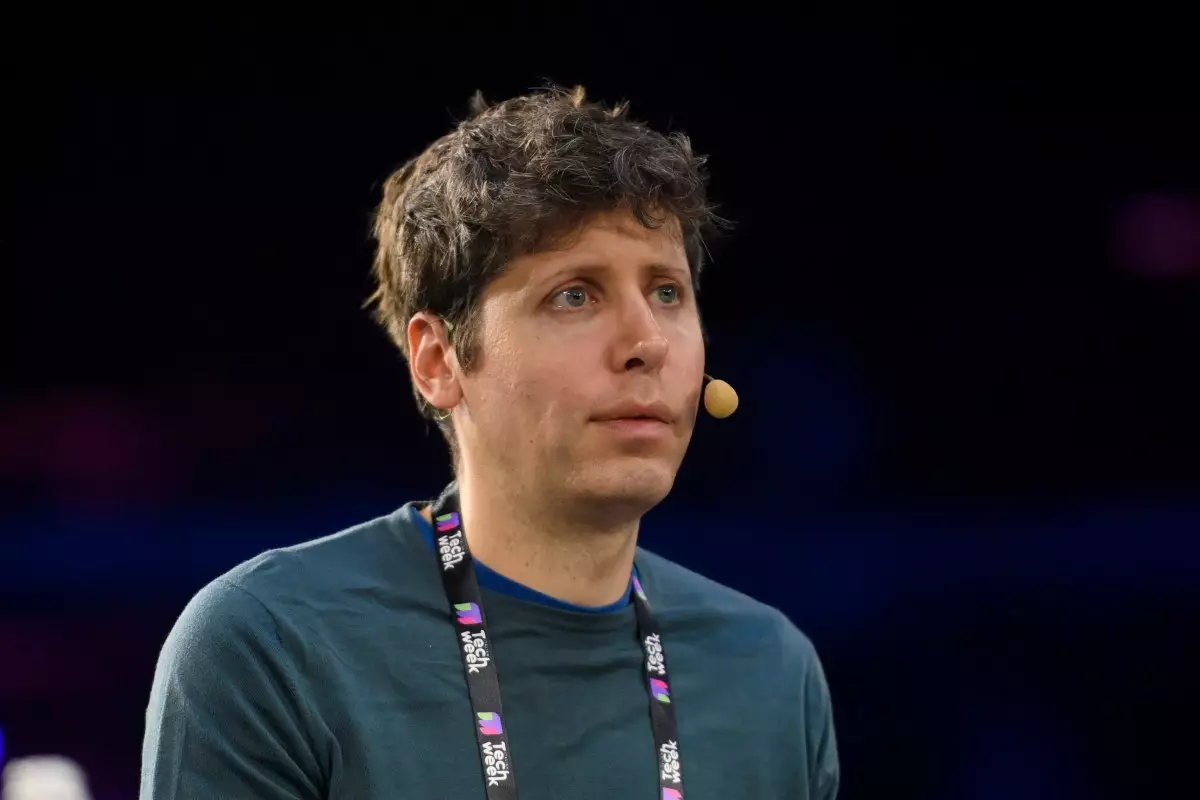In a significant pivot from its original branding, the startup co-founded by Sam Altman, initially known as Worldcoin, recently announced a name change to simply “World.” This rebranding, unveiled during a live event in San Francisco, marks a newfound emphasis on expanding beyond its cryptocurrency roots. Co-founder and CEO Alex Blania articulated that the prior name had become misaligned with the startup’s evolving mission, suggesting a shift towards a broader identity in a rapidly changing technological landscape.
At its core, World is built on the concept of “proof of personhood.” This idea stems from the realization that as artificial intelligence systems become more sophisticated, distinguishing between human beings and AI online will become exceedingly challenging. World aims to provide “human verification services” rooted in blockchain technology to address this dilemma. By scanning irises using their next-generation device, the “Orb,” World seeks to establish a human verification framework designed to ensure online interactions are genuine.
Blania pointed out that while Sam Altman is significantly involved in World, the ambitions of this startup are distinct from those of OpenAI. Although there are discussions and shared insights between the two entities, they operate under separate missions. This independence raises intriguing questions about the integration of AI and cryptocurrency futures, particularly the potential for World’s cryptocurrency to interface with AI technologies like ChatGPT.
Despite its bold aspirations, World faces substantial scrutiny from regulatory bodies globally, including investigations in Europe and Kenya regarding privacy and security concerns. The company has had to navigate a treacherous landscape where fears about misuse of biometric data are rampant. The rebranding to World does not erase these challenges, nor does it mitigate the concerns about centralized control over identity verification processes. Observers have raised eyebrows about the implications of a startup, particularly one associated with a high-profile figure like Altman, wielding such power over personal identity.
World’s model proposes redistributing wealth generated by AI direct to individuals, and yet the feasibility of this goal remains questionable in light of ongoing investigations and public skepticism. Trust is an essential currency for any service dealing with personal identity verification, and World must earn it if it wishes to thrive in an environment where users are increasingly wary of data misuse.
During the launch event, World shared a comprehensive four-step roadmap designed to enhance scalability and resilience. Having already developed the Orb and established a distributed ownership network on blockchain, the focus now shifts to expanding its user base beyond the current 7 million verified individuals. The success of World hinges on its ability to effectively market its innovative solutions to a broader audience and to encourage substantial adoption of the new technologies.
The newly unveiled Orb is not just a technological marvel; it is seen as a catalyst for widespread use of World’s verification services. Markedly improved in production efficiency, the Orb operates at a notably faster rate and promises a smoother user experience. Furthermore, with partnerships established with major service providers such as Rappi, World is poised to facilitate seamless verification processes in everyday contexts, potentially embedding itself deeply into daily life.
In addition to the focus on identity verification, World introduced Deep Face, a promising initiative aimed at combating deepfakes and online impersonation. The implications of such technology are vast, especially as concerns regarding misinformation and authenticity intensify. By offering systems designed to fortify trust in digital communications, World is positioning itself at the forefront of a movement against the rampant spread of deceptive technology.
Moreover, the beta launch of World ID represents an innovative approach to digital identification. By providing an alternative to traditional government IDs for online verification, the initiative could empower users to retain privacy while establishing their identities online. However, skepticism remains about the adoption rates and the willingness of individuals to embrace a system governed by a cryptocurrency company, particularly one with a controversial reputation surrounding transparency.
World’s transition from Worldcoin to World represents not only a rebranding but also an attempt to address pressing issues of identity, privacy, and trust in a digital age dominated by AI. As the company ventures into uncharted territory, the question remains: can it successfully navigate regulatory hurdles, gain public trust, and realize its vision of a verified, equitable online space? The stakes are high as World endeavors to establish itself as a crucial infrastructure provider in an increasingly digital and artificial world.

